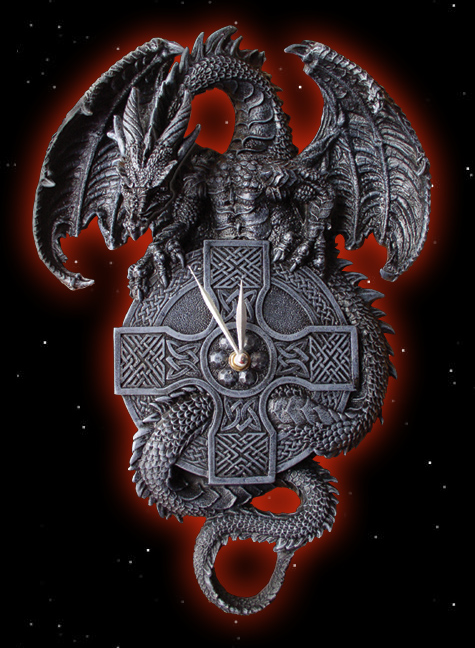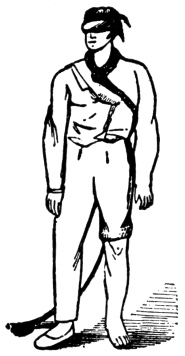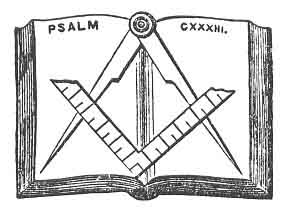The Novice must next learn how to decypher the letters he may receive; in order to which, he must make himself master of that cypher, which is to serve him until initiated into the higher degrees, when he will be entrusted with the hieroglyphics of the Order. 12
He will also remember, that he is never to write the name of his Order; so venerable a word cannot be exposed to prophane eyes, and a circle![]() with a point in the middle of it will supply this sacred word, and a long square or parallelogram
with a point in the middle of it will supply this sacred word, and a long square or parallelogram![]() will denote the word Lodge.
will denote the word Lodge.
p. 430
After these preliminary studies, the young brother receives a part of the code, under the title of Statutes of the Illuminees. But these first statutes are nothing more than a snare, and the young Novice, with pleasure no doubt, sees them begin with the following words:
“For the tranquillity and security of all the Brethren, whether Novices or active Members of the Society, and to prevent all ill-grounded suspicions, or disagreeable doubts, the venerable Order declares, that it absolutely has in view no project, enterprize, or undertaking hurtful to the state, to religion, or to good morals; and that it favours nothing of that nature in any of its members. Its designs, all its toils, solely tend to inspire men with a zeal for the perfection of their moral characters, to impregnate them with humane and sociable sentiments, to counteract the plans of the wicked, to succour oppressed and suffering virtue, to favour the advancement of men of merit, and to render those sciences universal which are as yet hidden from the generality of men. Such is not the coloured pretext, but the real object of the order.” 13
Even should the Novice not have entirely laid aside all suspicions respecting the intentions of the Order, still so positive a declaration he must think would guarantee him as to all obligations which might be imposed upon him. His grand aim is to be, to form his heart in such a maner as to gain not only the affection of his friends but even of his enemies. He is positively ordered to endeavour with all his might to acquire both interior and exterior perfection. It is true, he is soon after as positively ordered to study the arts of dissimulation and disguise; but then the Brother Insinuator is at his elbow to explain to him how that art coincides with true perfection, and thus suppress any suspicions which might arise from a comparison of these two injunctions. Beside, the Novice has many other duties to fulfil, which will deprive him of opportunity for such reflections.
He is next told, that the Brethren must have but one mind, one will, and similar sentiments; that, to effectuate this, the Order has made choice of certain works, to which he must apply with the greatest attention. Should the Novice be one of those men whom an attachment to the Gospel rendered more circumspect as to the snares laid for his belief, the very choice of the books would suffice to show him, that the first object of the Insinuator was to persuade him, that it is not even necessary to be a Christian to acquire the perfection enjoined by the statutes. The Morality he is taught is that of Epictetus, Seneca, Antoninus, and Plutarch, all foreign to Christianity. He will also receive the works of modern Sophisters, such as Wieland, Meiners, and Bassadows, who by no means make perfection to consist in Christianity. Under the soothing and mellifluous language of a moderate and specious Philosophy, he will be led to lubricity and impiety, traced by the sophisticated pen of Helvetius in his celebrated work De L’Esprit. 14 But the Insinuator must previously have sufficiently studied the dispositions of his pupil to know whether such propositions would any longer startle him. Beside, nothing is better calculated to dissipate all such fears, than the constant application that is required to those books which are put into the hands of the Novice, added

Moe is the founder of GnosticWarrior.com. He is a father, husband, author, martial arts black belt, and an expert in Gnosticism, the occult, and esotericism.




